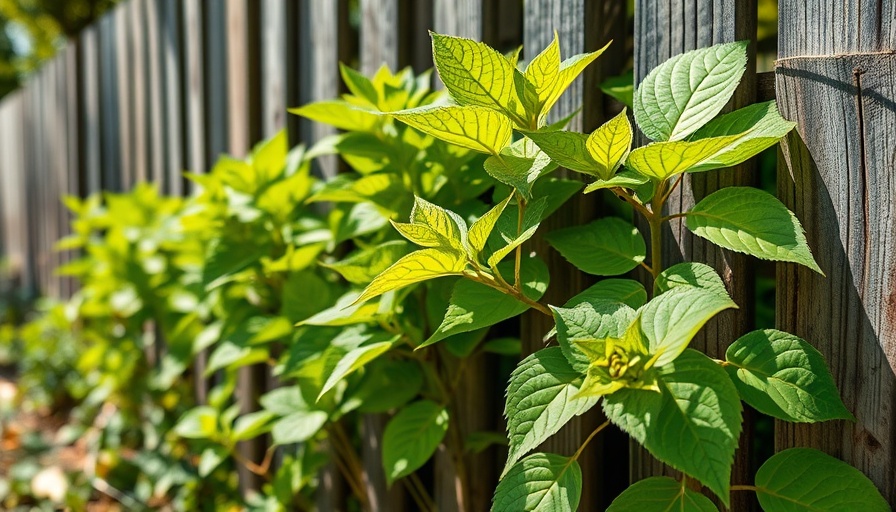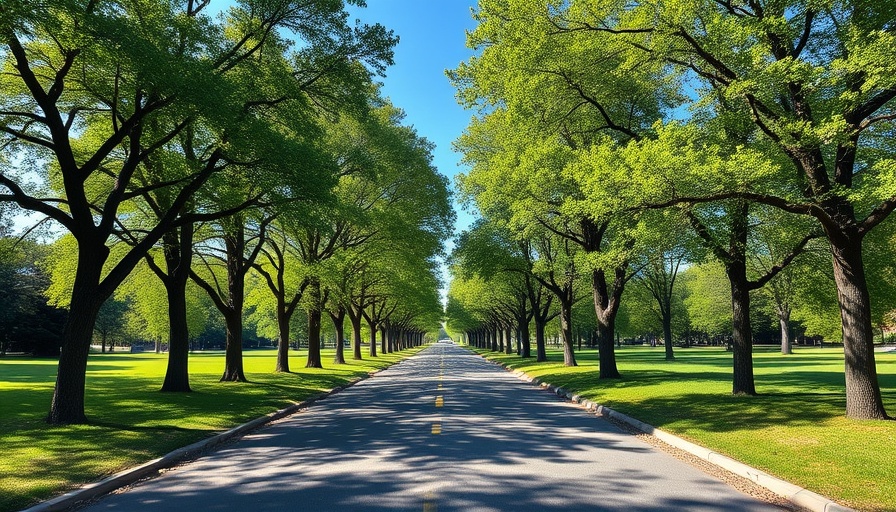
Confronting the Japanese Knotweed Nightmare
When one Redditor voiced their concern about Japanese knotweed invading their father’s lawn, they represented a growing anxiety among homeowners everywhere. Japanese knotweed, known for its aggressive growth and resilience, poses a unique threat not just to gardens but also to the very foundations of our homes. As the roots of this invasive species can penetrate 20 feet deep, the risks extend such that financial institutions have even been known to reconsider issuing mortgages on properties with this problematic plant nearby.
Why Invasive Species Matter
Understanding the damage inflicted by invasive species like Japanese knotweed begins with recognizing how they outcompete native flora. In a landscape where natural checks and balances are absent, these invaders monopolize resources, resulting in diminished biodiversity. Homeowners might notice that while they grapple with this invasive plant, it's equally crucial to protect the native species that enhance local ecosystems and require significantly less maintenance.
Effective Strategies for Removal
Facing Japanese knotweed can seem daunting, but experts suggest actionable strategies. Many Reddit users echoed the sentiment that cutting back the plant at specific times of the year, followed by the application of targeted herbicides like glyphosate, can be effective. Timing is key, with recommendations to handle it toward late summer and early fall when the plant is most vulnerable.
The Benefits of Native Plants
In the midst of tackling invasive species, the emphasis on native plants shines through. Incorporating native flora, such as violets, not only contributes positively to the local ecosystem but also requires much less effort in terms of maintenance. Native plants can thrive in local conditions, offering the dual benefit of resilience and sustainability.
Local Solutions for Lawn Health
For homeowners in Shelby MI, seeking professional lawn care and landscaping services can be a game changer. From weed control to tree trimming and seasonal yard cleanup, local experts can provide tailored solutions for maintaining lawn health and managing invasive species. Services such as organic lawn care, fertilization, and irrigation can ensure your landscape remains robust and beautiful in the long run.
As many family gardens face similar challenges, this conversation around invasive species like Japanese knotweed becomes vital. Homeowners should remain proactive: addressing these issues today will ultimately safeguard their properties tomorrow. A community that supports sustainable practices and understands the ecological balance can create not only beautiful but resilient spaces.
 Add Row
Add Row 
 Add
Add 


 Add Row
Add Row  Add
Add 
Write A Comment